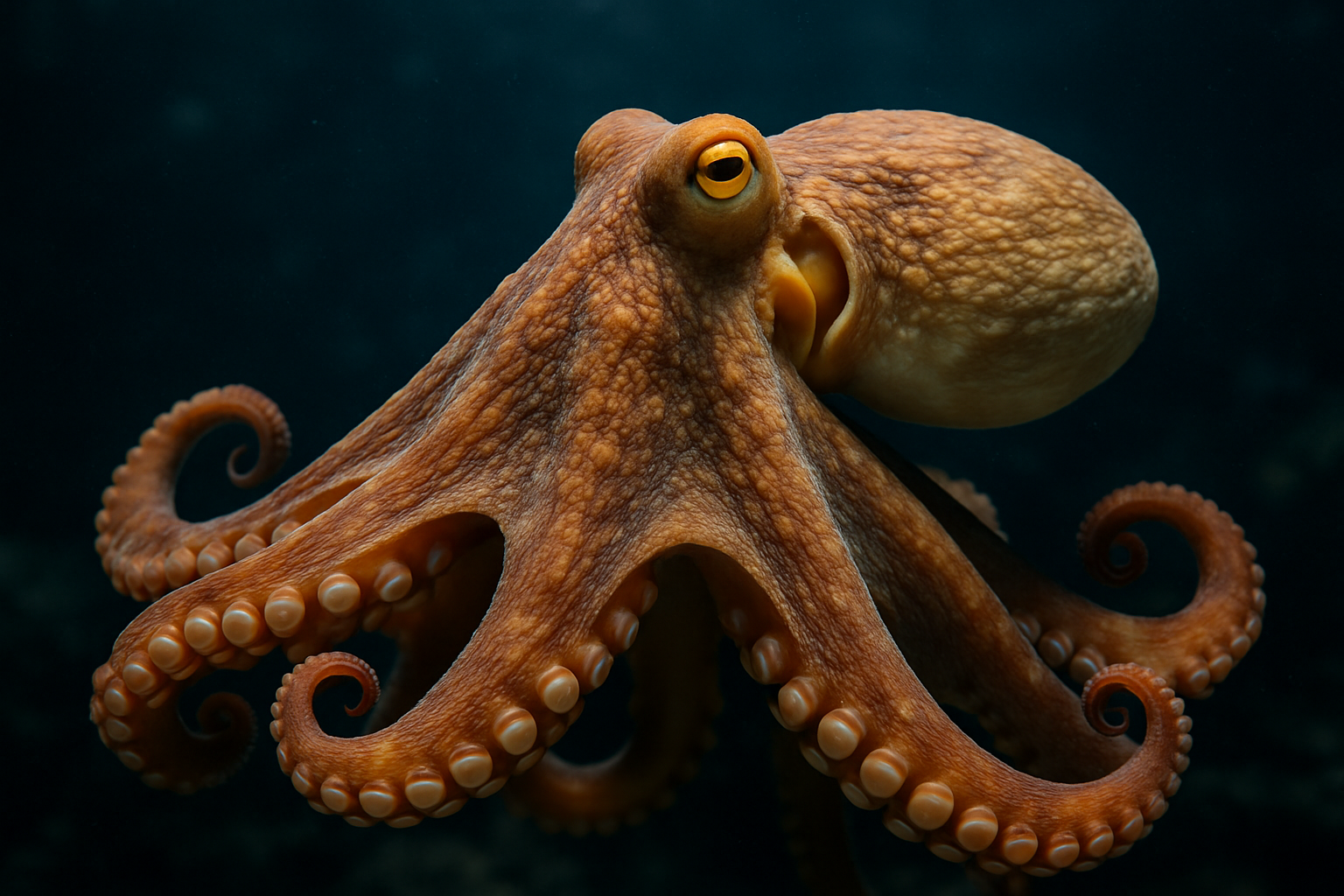The Intriguing World of the Octopus: Intelligence and Adaptability
The octopus, a creature of immense intelligence and adaptability, continues to fascinate scientists and marine enthusiasts alike. This article delves into the extraordinary abilities of these marine creatures, their evolutionary history, and the latest scientific research on them.

Unraveling the Octopus: A Historical Overview
The octopus belongs to the family of cephalopods, a group of marine creatures that also includes squids and cuttlefish. Cephalopods first appeared in the late Cambrian period about 500 million years ago. However, the evolution of the modern octopus, with its highly developed nervous system and sophisticated behaviors, is believed to have occurred much later, around 300 million years ago. Over millions of years, octopuses have evolved to become one of the most intelligent and behaviorally complex of all invertebrates.
The Octopus Intelligence: Unmatched In The Animal Kingdom
Octopuses display a range of behaviors that indicate high cognitive function. They can solve puzzles, use tools, and show a capacity for learning and memory that is unmatched by other invertebrates. Recent research has shown that octopuses have a large brain and a highly complex nervous system, with more than half of their neurons located in their arms. This decentralized nervous system allows each arm to function semi-independently, giving the octopus a unique ability to multitask.
The Art of Camouflage: Octopus’ Remarkable Adaptation
One of the most impressive abilities of an octopus is its capacity for rapid color change and skin texture alteration. They can match their surroundings in a matter of seconds, a skill used both for hunting and escaping predators. This extraordinary ability is due to specialized cells in their skin called chromatophores, which can expand or contract to change the octopus’s color and pattern.
Current Research: Understanding Octopus Behavior
In recent years, scientists have been studying octopus behavior in more depth. In 2020, a study published in the Journal of Experimental Biology found that octopuses can ‘taste’ with their arms. This research is helping scientists understand how octopuses interact with their environment and could potentially have implications for understanding other cephalopods and their behaviors.
The Market Impact: Octopus as Pets and Aquarium Exhibits
Owning an octopus as a pet or featuring them in aquarium exhibits is becoming increasingly popular. However, their care requires specific knowledge and resources due to their unique behaviors and needs. Depending on the species, an octopus can range in price from $30 to several hundred dollars. As the interest grows, it’s crucial to ensure that the trade is sustainable and doesn’t negatively impact wild populations.
In conclusion, the octopus is an intriguing creature that continues to captivate us with its intelligence and adaptability. As research progresses, there’s no doubt we will continue to learn fascinating facts about this extraordinary creature, further deepening our appreciation for the wonders of the animal kingdom.





